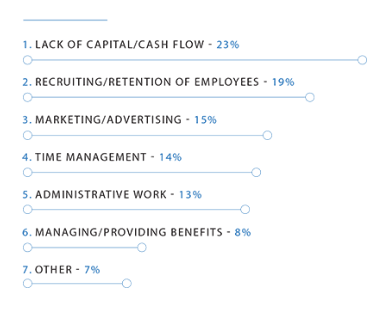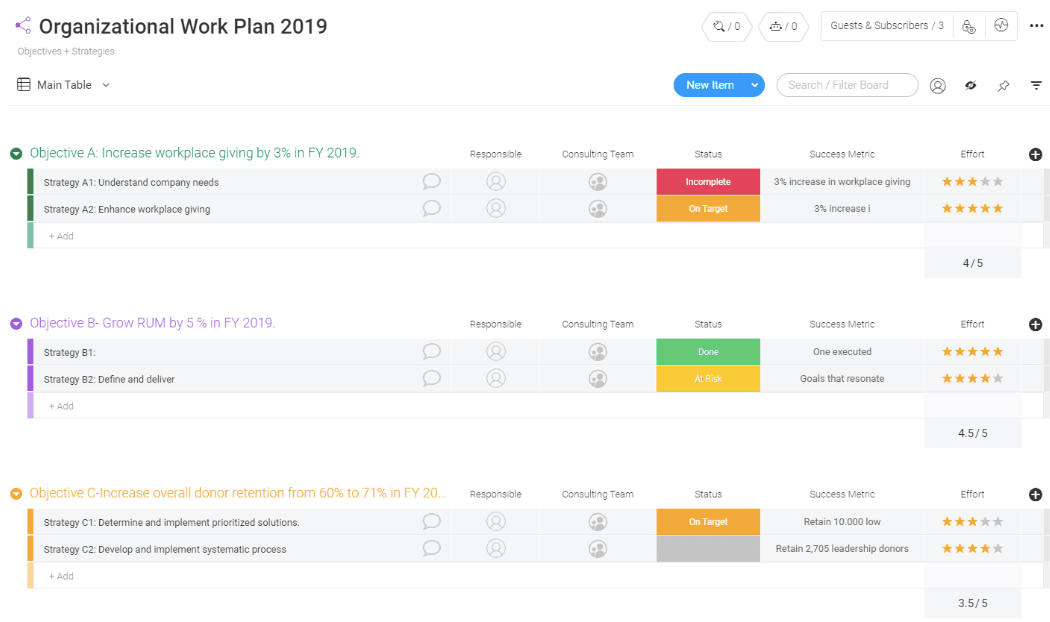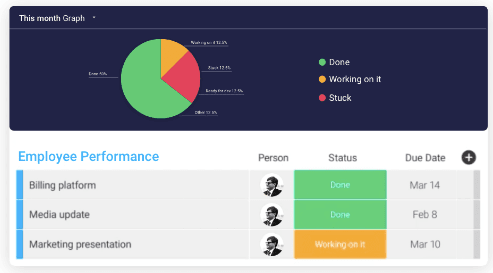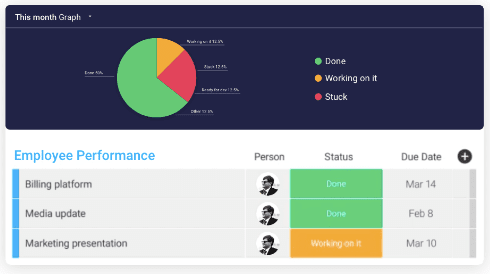When you decided to start a new business, you probably had a vision of the future life you’d like to create.
Maybe you wanted to become your own boss to have a flexible schedule and spend more time doing things you love.
Or perhaps you have a passion that you’ve always dreamt of pursuing.
Whatever your vision, you probably didn’t imagine yourself bogged down by small business management and administration. But that’s the reality for many small business owners.
If you’ve become chained to your business, it’s time to start managing it right.
This article will explain how better small business management could be the difference between success and failure for your business and share the tips and tools you need to succeed.
What is small business management, and why is it important?
In 2022, there were 33.2 million small businesses in the US, defined as having 500 employees or less. This represented 99.9% of all US businesses, and that number is growing.
But how many small businesses actually survive long-term?
Well, the good news is that around 80% of new businesses survive their first year.
But, after 10 years, that number dwindles to just 30%.
What makes the difference between businesses that sink and those that swim? And—more importantly—how can you make sure yours is one of the successful ones? It all comes down to business management.When small businesses fail, it’s almost always due to management problems.
Effective management of business administration from the outset helps grow a small business and makes the difference between the small businesses that fail and those that thrive.
What are the main challenges small businesses face?
Ask any successful entrepreneur, and they’ll tell you entrepreneurship is not for the faint-hearted.
Poor business management could be costing you not only time and money, but also your health.
The image below shows the main — non-COVID-related — challenges that small businesses face.

Good small business management involves:
- Planning
- Budget and resource management
- Managing individual and team workflows
- HR management, including employee recruitment, hiring, and training
- Branding and marketing
- Reporting
- Overseeing day-to-day operations
- Setting goals and helping your team achieve them
Most — if not all — of the issues that plague small business owners can be resolved by improving your business management processes.
Good business management practices can:
- Save you time
- Increase your revenue
- Improve operational efficiency
- Improve employee satisfaction and retention
- Improve customer satisfaction and retention
It’ll also save you a lot of stress, and mitigate the potential consequences on your health. After all, you are your most valuable asset.
Small business management: 5 tips to successfully scale your business
OK, so now you know why proper business management is important for your small company and that dream life you’re working hard to create.
But you may be wondering where to start.
If so, you’re in the right place. Follow these 5 tips to set your business up for long-term success.
1. Fail to plan, plan to fail
If you started your business with a business plan, congratulations, you’re off on the right foot.
A business plan has 3 main purposes:
- It maps out a strategy to achieve your business goals.
- It helps you decide how much investment you will need.
- It attracts investors.
But you shouldn’t just let your business plan gather dust once the launch phase is over.
Instead, regularly revisit your business plan and update it once every year.
A strategic plan can help make sure everyone on your team is aware of your business’ goals and their role in achieving them.
To effectively manage, implement, and review your business plan, you need tools that allow you to plan your strategy, implement your activities, and analyze your data so you can make informed decisions.
monday.com allows you to do all 3.
The image below shows an example of an organizational plan in monday.com.

2. Automation is your secret weapon
92% of business leaders believe that automating business processes is the key to improving customer satisfaction and crucial to thriving in a post-COVID world.
Currently, around 51% of business processes are automated, but that’s likely to continue increasing throughout 2023 and beyond.
Not only does automation improve customer satisfaction, but it also increases sales and reduces costs by improving efficiency.
This makes it non-negotiable for small businesses that operate with small margins.
Automation allows you to… well, automate many of the repetitive tasks that you normally do manually.
This can save you and your team time and energy that can be dedicated to your core work.
Here’s an example of a sales automation in monday.com.

3. Crunch the numbers
When you first start, it can be tempting to keep your small business finances and personal finances together.
After all, it’s just little old you, right?
Wrong.
If you’re serious about scaling your business, you need to manage your finances from the start to avoid headaches when it comes to paying your taxes. Moreover, forming an LLC (Limited Liability Company) will protect you and your assets from personal liability should you come across any legal issues with your business.
As well as separating your finances, one of your first hires should be a qualified accountant (CPA) to take care of financial management.
This will ensure you follow ethical accounting practices and local regulations, as well as saving you a lot of time and stress.
You’ll also need robust budget tracking and reporting software, such as monday.com. Check out our budget tracking template to see what we mean.
![]()
4. Delegate or die trying
As an entrepreneur, you set up your business to bring to life an idea you’re passionate about — not to have your energy sucked by the nitty-gritty of day-to-day business management.

Delegating tasks to trusted employees will save you time and allow you to focus on your most important work.
With monday.com, you can delegate tasks to your team while keeping an eye on progress through workflow management.

5. Embrace new technologies
New software services make every aspect of running a small business easier and more efficient.
You can save hours of manual work in every area, from accounting to sales, marketing, HR, and more.
It can even help improve your customer experience. Remember, happier customers mean more sales and less churn.
Your bank account will love you for it.
What is the best software to manage a small business?
A Work OS — like monday.com — is a cloud-based software platform that allows you to plan, run, and track your business processes, projects, and day-to-day work.
It’s perfect for small business management, since fully-customizable apps can be adapted to your needs and effortlessly scale alongside your business.
Here are 4 of the essential features to look for in small business management software.
1. Marketing management software
Campaigns are the lifeblood of marketing, so you need software that can increase your campaign efficiency and help you do more of what works and less of what doesn’t.
At first, you might start with just one marketing campaign, but as your business grows, you’ll want to start running multiple campaigns targeting different segments of your audience.
With monday.com, you can plan, implement, track and analyze campaigns, manage workflows, and automate both email and social media marketing.
![]()
2. Sales management software
Did you know that up to 30% of sales processes — from qualifying leads to the post-sales journey — can be automated?
Along with automation, sales management software like monday.com allows you to easily view your sales pipeline and resolve issues at any stage of the funnel.

It can also help you forecast your future revenue and cash flow and overview your sales performance with its customizable dashboard views.

3. Design management software
Creating and using a coherent brand identity, voice, and message can be a challenge for many small businesses.
With a platform like monday.com, you could create a branding project that includes market research, data analysis, planning, and collaboration tools that make it easy to share information and manage workflows.

Once you finalize your brand documents, you need to make sure all your employees have easy access to inform other activities, like marketing.
monday.com helps you keep your branding consistent through its file-sharing integrations, including Box and Dropbox.
4. HR management software
As a small business owner, you might not currently give much thought to human resources processes.
After all, your team consists of a handful of employees, and the vibe feels more like family than work colleagues.
But the reality is that it’s best to get your HR policies and processes in place before your company starts growing.
The best way to do that is to use scalable HR management software that grows with your business.
The following image shows what HR management can look like in monday.com.

Small business management can help you survive and thrive
If you want to be in the 30% of small businesses still in the game and growing 10 years from now, you need to get serious about small business management.
Investing in a robust, intuitive small business management platform like monday.com will get you one step closer to that dream life you’re working so hard for.
To get started, why not try our done-for-you organizational plan template?

